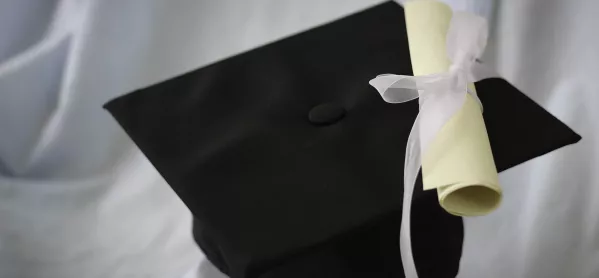My granny in Ireland always calls me “Claire with the three degrees” as it took me two postgraduate degrees to decide what to do after university - more years ago than I care to mention.
As I embark on an MBA, I wonder what she will call me now.
The idea to undertake this course came about when running with a friend last year. He mentioned that he was studying for an MBA in educational leadership.
My interest piqued when he said it was based in Finland. All educators know that the Finnish education system is among the highest ranking in the world.
With a background in early years education, I have always been intrigued by their play-based and child-led approach intertwined with their high scoring Timss (Trends in International Mathematics and Science Study) and Pisa (Programme for International Student Assessment) results.
So I decided to give it a go as I felt settled enough in my international teaching role to take on the extra commitment and saw it as a key way to help me to develop as a leader where I teach.
The application process consisted of an essay outlining current leadership challenges I face, which was then followed by an online interview.
I was delighted to be accepted onto the course.
Initial excitement soon paved way for newfound stress when figuring out how to balance course content with learning to teach in the Covid-era. It can be quite a juggling act.
One of the course directors advised us on the first day to sacrifice one thing to battle the time management issue. If you are embarking on a new study commitment, you will soon figure out how to best utilise your time.
One of my colleagues does two hours every morning before work; I work better devoting a larger chunk at weekends.
Small changes can help too. My kindle has been replaced in my handbag by printed library chapters and a highlighter pen for any stolen moments I can get to read.
Of course, many other teachers may well be wondering why I feel the need to put myself through more study, more work, and more deadlines.
Well, to me, the benefits of studying while working far outweigh any time management constraints or concerns.
I find myself being a more reflective practitioner as I learn about theorists and educational philosophies.
I have had my eyes opened about the financial implications of running a school or education business. And I love getting to put theory into practice immediately in my work environment as I learn.
Another benefit of the Master’s lies in the connections it provides.
Participants are scattered all over the globe and it has created opportunities to network with educators from many fields. The course is made up primarily of teachers but some students have business backgrounds.
One woman worked for the UN in Afghanistan and another man for the US Embassy. The course has provided me with the honour of meeting people I would never have crossed paths with previously.
I feel like sharing the (occasional) pain of studying and working simultaneously creates a strong bond that not many others can relate to.
It’s great to have people not only to share the ups and downs with but who can also motivate and inspire you to be the best educator you can be.
And of course, let’s be realistic, completing a Master’s degree also opens up new, exciting and well-remunerated job opportunities.
Studying while working is seen as favourable by potential employers. Many of the cohort before me have had promotions while completing the Master’s part-time.
Of course, this is still a little way away for me at present, with two years of study ahead of me.
But, judging by my course predecessors, there will be a brand new network of lifelong friends and colleagues to motivate and inspire me along with ample opportunity to explore new pathways in the ever-changing world of education.
Claire Heylin is primary English lead at Deira International School in Dubai



